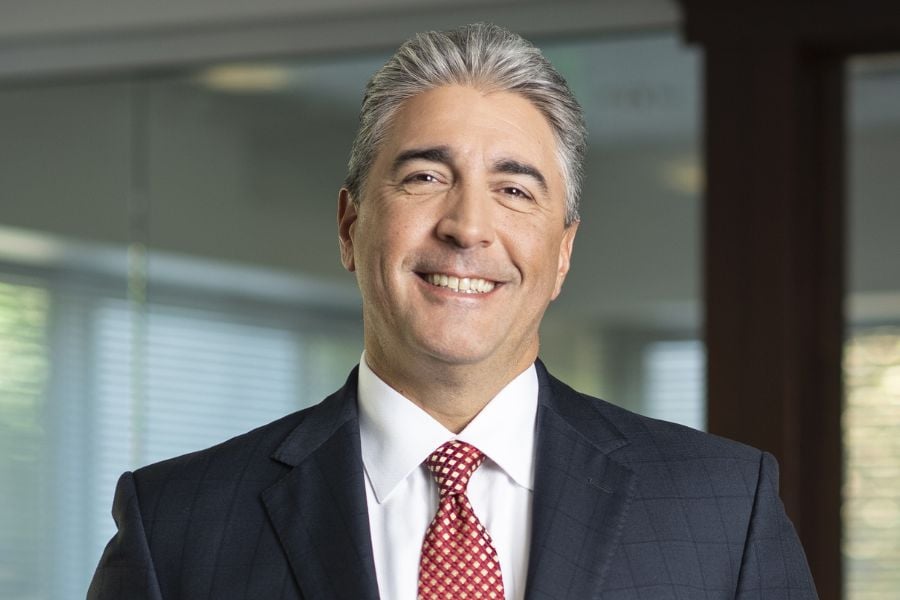

Prior to founding Verdence Capital Advisors, Leo Kelly was a proud member, not to mention managing director and Circle of Champions inductee, of Merrill Lynch’s vaunted “Thundering Herd” of financial advisors.
Then Kelly went the independent route and never looked back.
“I was one of those one of those guys who bled Merrill blue and thought I would retire at Merrill. And when Bank of America bought Merrill and the culture changed, we started to look around. We discovered independence,” said Kelly, who left Merrill for Hightower in 2012 before starting Verdence in 2017.
Kelly said the big difference between running a book of business at Merrill and operating his own shop is the fact that he was a “practice manager dealing with specific client issues” at the wirehouse, while at Verdence he is an “entrepreneur.”
Verdence operates as a private wealth advisory and multifamily office firm headquartered in Hunt Valley, Maryland, with offices in Northern Virginia and Naples, Florida. The RIA currently boasts a head count of 45, with 18 of those employees being advisors.
“We don't have the conflict of interests that exist in the wirehouse,” Kelly said. “And not only is it more fun to run the business, but it's easier to grow the business. Our relationship with the client has also deepened in a way that I don't think we had when I was at Merrill.”
He said the steepest part of the learning curve after leaving Merrill and starting his own shop was putting himself in the mindset of many of his clients. In other words, thinking like a business owner. That means having to meet payroll, learn and install new systems, and do all the other things for himself that “Mother Merrill” used to do for him.
In terms of asset growth, Kelly says he left Merrill with approximately $600 million under management and had grown that to $1.2 billion by the time he left Hightower in 2017 to start Verdence. At last check, Verdence reported assets under management of approximately $3.5 billion.
And Kelly said the opportunities for wirehouse advisors to go and grow on their own have not diminished.
“Every year we continue to see the assets under management in the RIA space growing rapidly,” he said. “Almost every week, there is another story about a major wirehouse team leaving. When was the last time you saw an article that said an RIA is going to a wirehouse?”
Kelly did admit that the high-multiple RIA buyouts of the past few years have slowed down as the cost of capital has increased. While that may affect the valuation of his own business, he is OK with it – for now.
“I think there's some sensibility that has to come back to the M&A space,” said Kelly, noting that even well-funded private equity players may not be willing to pony up as much as they once did.
Still, he believes that smaller RIA players need to figure out their growth plans, including consolidation, or they'll be run over by the coming AI wave.
“They've got a decision to make, and AI is going to force them to make it right now,” said Kelly.

Eliseo Prisno, a former Merrill advisor, allegedly collected unapproved fees from Filipino clients by secretly accessing their accounts at two separate brokerages.

The Harford, Connecticut-based RIA is expanding into a new market in the mid-Atlantic region while crossing another billion-dollar milestone.

The Wall Street giant's global wealth head says affluent clients are shifting away from America amid growing fallout from President Donald Trump's hardline politics.

Chief economists, advisors, and chief investment officers share their reactions to the June US employment report.

"This shouldn’t be hard to ban, but neither party will do it. So offensive to the people they serve," RIA titan Peter Mallouk said in a post that referenced Nancy Pelosi's reported stock gains.
Orion's Tom Wilson on delivering coordinated, high-touch service in a world where returns alone no longer set you apart.
Barely a decade old, registered index-linked annuities have quickly surged in popularity, thanks to their unique blend of protection and growth potential—an appealing option for investors looking to chart a steadier course through today's choppy market waters, says Myles Lambert, Brighthouse Financial.
